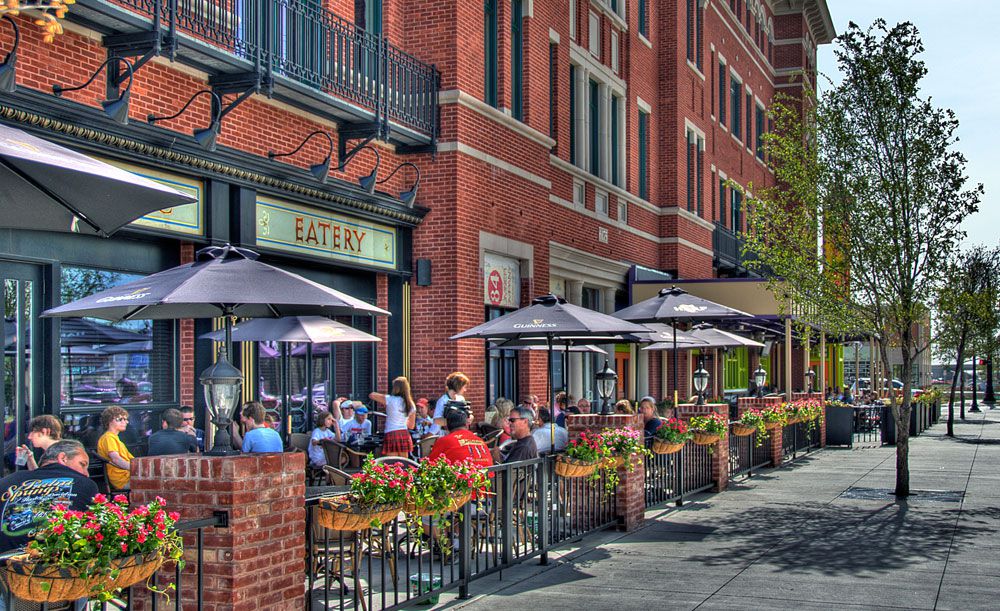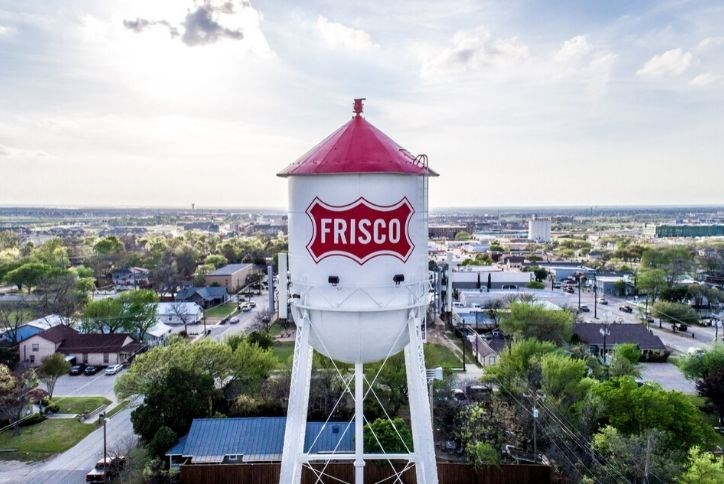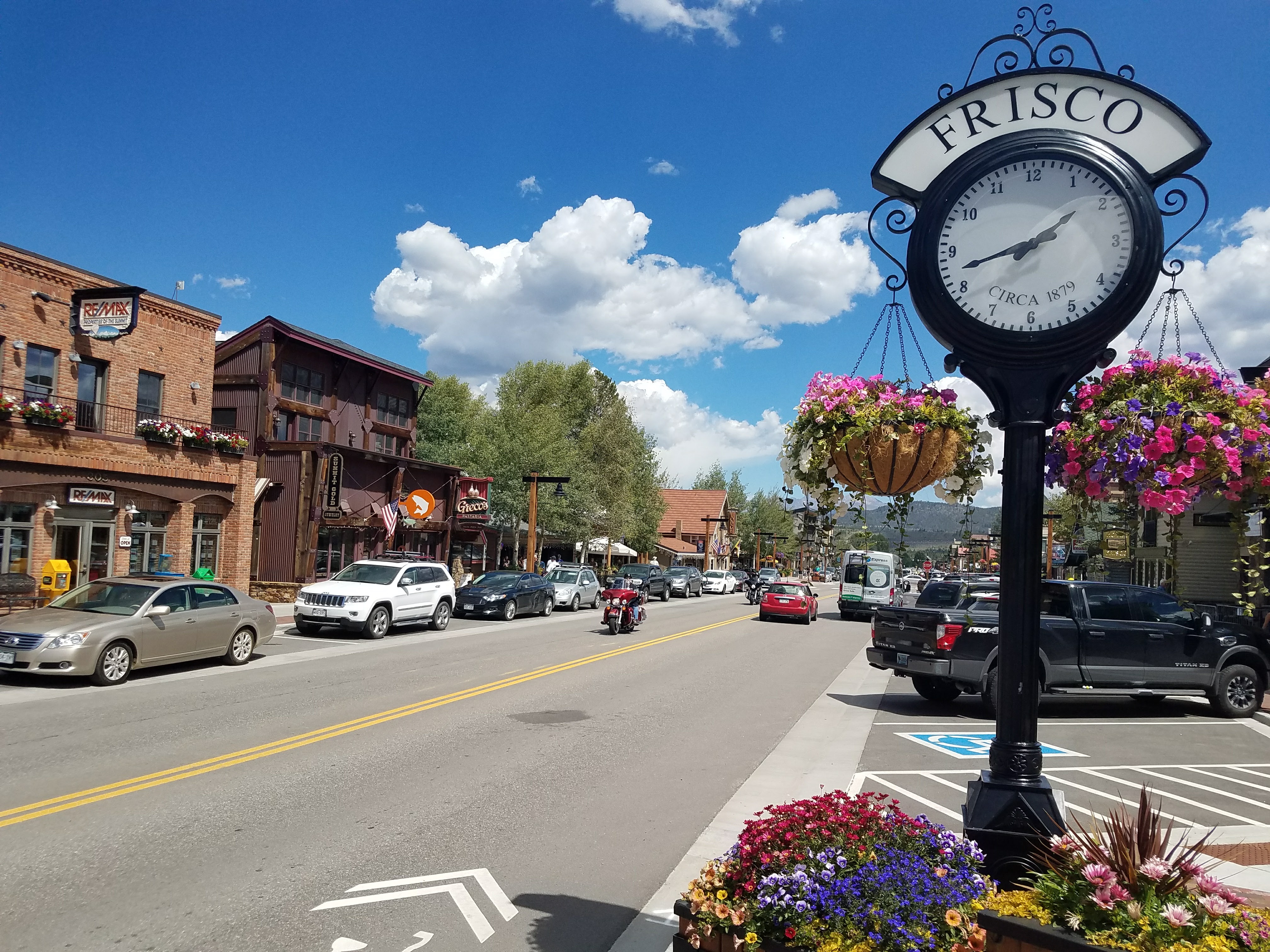Frisco Auto Exchange - Community And History
When you think about places where people come together, sometimes it's for sharing stories, sometimes it's for finding something special, and sometimes, it's just for connecting with others who get it. This kind of gathering, you know, where folks with a shared interest can really feel at home, is pretty cool. For those with a soft spot for history, particularly the kind that rumbles on tracks and connects towns, a place like the Frisco Auto Exchange sounds like just the spot. It’s a concept that brings together the spirit of community, the love for historical pieces, and the simple joy of swapping tales and items.
It’s a place, more or less, where the echoes of a past era meet the present, creating a lively spot for people to trade information and maybe even some treasured items. You might find old newsletters, perhaps even those from the FMIG and All Aboard groups, which, you know, were once the main way folks kept up with things. These exchanges, in a way, help keep the history alive, making sure that what was important then still gets talked about now. It's about keeping those connections strong, honestly, among people who appreciate the same things.
This idea of an "exchange" isn't just about things; it's also very much about the people. It’s a spot where, you know, information about Frisco people and their unique memorabilia can be shared freely. Think of it as a friendly gathering, a bit like those old forums where folks talked about modeling the Frisco line or shared news about new products. It’s a place for adherents, as some might call themselves, to simply be among others who share that same special interest. That, in essence, makes it a welcoming place for everyone involved.
Table of Contents
- Frisco Auto Exchange - A Place for Shared Interest
- What are the Historical Roots of the Frisco Auto Exchange?
- How Does the Frisco Auto Exchange Foster Community Spirit?
- Finding Memorabilia and Other Treasures at the Frisco Auto Exchange
- Connecting Past and Present - The Frisco's Ongoing Presence
- Who are the People Behind the Frisco Auto Exchange Passion?
- Are There Special Items to Look For at a Frisco Auto Exchange?
- Exploring Local Connections and Historical Sites
- Sharing Stories and Knowledge at the Frisco Auto Exchange
Frisco Auto Exchange - A Place for Shared Interest
The very idea of a Frisco Auto Exchange points to a spot where enthusiasts can gather, a place that helps keep the spirit of a particular past alive. It’s a space where people can, you know, swap stories and share things related to a shared passion. This kind of spot is pretty important for those who feel a deep connection to history, especially the kind that has left a lasting mark on our country's development. It's about more than just old items; it's about the connections these items represent and the stories they tell, which, you know, makes it all the more interesting.
You see, the original text mentions a section for archiving old newsletters and for exchanging information about Frisco people and their memorabilia, and even for the exchange of goods. This really sets the scene for what a Frisco Auto Exchange could be. It's a place where that spirit of sharing and collecting comes to life. It’s a community hub, in a way, where people can feel free to do whatever they choose in regards to creating or owning something that speaks to this history. That freedom to connect and share is what makes such a place truly special, honestly.
Think about it like this: the old forums, particularly those focused on modeling the Frisco, were places where folks could talk about new products or just share general thoughts. A Frisco Auto Exchange would carry on that tradition, providing a similar kind of space. It’s where someone might say, "I'm just a minion among the adherents here at frisco.org," showing that humble, yet very dedicated, spirit of belonging. This sense of shared interest and connection is what truly makes any exchange, especially one tied to such a rich history, worth visiting, you know.
- %D8%B3%D9%83%D8%B3%D9%8A %D8%B7%D9%8A%D8%A7%D8%B2 %D9%83%D8%A8%D9%8A%D8%B1%D9%87
- General Tung Ak
- New Benefits
- Richard Hipp
- Max Novendstern
What are the Historical Roots of the Frisco Auto Exchange?
To really get a feel for what a Frisco Auto Exchange might represent, it helps to look at the history of the Frisco itself. The Frisco railroad, as it was known, had a long and very interesting run. It eventually joined with, and became a part of, the Burlington Northern on November 21, 1980. But even after that big change, most of its old lines are still used today, either by BNSF or by different smaller rail lines. This means that, in a way, the Frisco's presence is still felt, which is pretty neat.
This enduring presence means there’s a lot of history to talk about, and a lot of items that still exist from that time. For instance, the Frisco moved a lot of lumber, particularly from the Pacific Northwest, bringing it in through the UP line. If you were, say, putting together some old waybills for a collection, you could really show that part of the history. This kind of detail, you know, helps paint a picture of what life was like back then and what the railroad meant to the economy of the time. It’s all part of the story that a Frisco Auto Exchange would help keep alive.
The research that some folks have done, based on initial suggestions from others, shows just how deep this history runs. People have put in the time to look into things, like specific types of freight equipment used on the HO scale models. This kind of dedication to understanding the past, even in tiny details, is what makes a place like the Frisco Auto Exchange so vibrant. It’s where all that careful looking into the past can be shared and appreciated by others, which is very cool.
How Does the Frisco Auto Exchange Foster Community Spirit?
The community spirit around the Frisco, and by extension a Frisco Auto Exchange, is pretty strong, honestly. People who are interested in this history tend to connect with each other, sharing what they know and what they have. You see this in statements like, "I'm just a minion among the adherents here at frisco.org," which really highlights that sense of belonging. It’s not about being the most important person; it’s about being part of a group that cares about the same things, and that's a powerful bond.
This community feeling is also clear when people talk about their personal connections. Someone like Kevin Dragoo, from Georgetown, Texas, who works in commercial construction, might share how he grew up far from the Frisco in the Pacific Northwest, but it still became something very important to him. These personal stories, you know, add a layer of warmth and realness to the historical facts. A Frisco Auto Exchange would be the perfect spot for these kinds of personal connections to form and grow, truly.
The idea of a "swap meet," which is mentioned in the original text, perfectly captures this community spirit. It's a place where discussions happen, where items are traded, and where people simply get to hang out with others who share their interests. It’s a casual, friendly setting where folks can talk about photos and text related to old boxcars, or perhaps even discuss specific cars that toured in the past. This shared activity, more or less, builds a strong sense of togetherness among the participants, making the Frisco Auto Exchange a welcoming place.
Memorabilia and Other Treasures at the Frisco Auto Exchange
When you visit a Frisco Auto Exchange, you're likely to find all sorts of interesting memorabilia and other treasures. The original text talks about archiving old newsletters and exchanging goods, which suggests a wide range of items could be present. This could mean anything from old documents to actual pieces of equipment, or even just photos that tell a story. It’s a chance to find those unique pieces that connect you to the past, you know, in a very tangible way.
Consider the mention of "photos and text about boxcars." This points to the kind of specific, detailed items that enthusiasts really appreciate. You might find original photographs, perhaps even some with the Frisco's distinct markings, or old documents that describe how these cars were used. These aren't just random items; they are pieces of history that hold meaning for those who understand their background. A Frisco Auto Exchange would be a prime spot for these sorts of discoveries, truly.
The text also brings up the idea of a "Santa Fe car" that someone learned about from an old newspaper article, noting that it toured. This suggests that even if a specific "Frisco version" of a car isn't known, the broader interest in historical vehicles and their stories is very much present. An exchange like this could be where someone shares information they pulled from an old newspaper, perhaps about a vehicle that toured through Frisco territory, or one that was used in a way that ties into the railroad's operations. It’s about sharing those bits of history, which is pretty special.
Connecting Past and Present - The Frisco's Ongoing Presence
The Frisco's history isn't just something that happened and then stopped; it continues to influence things today. The fact that most of its lines are still in service, even after the merger with Burlington Northern, shows this ongoing presence. This means that the legacy of the Frisco is still very much a part of the physical landscape, which, you know, makes it easier for people to feel connected to its past. A Frisco Auto Exchange would be a place where this living history can be discussed and appreciated.
People often find ways to reflect this history in their hobbies, too. For example, the text mentions how the Frisco moved a lot of lumber, and how someone could reflect that in their waybills if they wanted. This kind of detail shows how the past operations of the railroad inspire current activities, like model building or collecting. It’s a way of keeping the stories of those old operations alive, making them relevant even now. This connection between the past and present is a key part of what makes the Frisco Auto Exchange so interesting, honestly.
The mention of someone having "a lot of that type of traffic on my upcoming layout" really highlights this active connection. It’s not just about looking at old pictures; it’s about creating new ways to experience and understand the past. A Frisco Auto Exchange could be a place where these personal projects are shared, where people can see how others are bringing the Frisco's history to life in their own unique ways. This ongoing engagement, you know, ensures that the Frisco's story continues to be told and explored.
Who are the People Behind the Frisco Auto Exchange Passion?
The people who are drawn to something like a Frisco Auto Exchange are often individuals with a deep, personal passion for history and community. Take Kevin Dragoo, for instance, who is a project manager in commercial construction from Georgetown, Texas. He grew up far from the Frisco, in the Pacific Northwest, but somehow, it still became a significant part of his interest. This shows that the connection to the Frisco isn't just about geography; it's about a shared fascination, which is pretty cool.
Then there’s Karl, mentioned as the 2008 Engineer of the Year and a frisco.org supporter. His involvement points to the kind of dedicated individuals who contribute to the broader community. People like Karl often have a lot of specific knowledge, perhaps about things like the 1957 book "Rules of the Transportation Department," which defines what a station is. These are the folks who help preserve the fine details of history, making sure that accurate information is passed along. A Frisco Auto Exchange would be a spot where their knowledge is valued, honestly.
The original text also mentions "Davidgaines" starting a discussion in the 'swap meet' section, showing that these events are driven by individuals who take the initiative to create spaces for sharing. It’s these active participants, the ones who are ready to share their finds and their insights, who really make an exchange vibrant. They are the ones who bring the stories, the items, and the enthusiasm that truly defines a place like the Frisco Auto Exchange, you know.
Are There Special Items to Look For at a Frisco Auto Exchange?
When you think about what you might find at a Frisco Auto Exchange, the possibilities are quite interesting, especially given the historical context. Since the original text mentions "photos and text about boxcars," you might expect to see a lot of visual and written records related to the Frisco's rolling stock. These could be original photographs, blueprints, or even old advertisements that feature the railroad's equipment. Such items offer a real glimpse into the past, which is pretty neat.
The discussion about a "Santa Fe car" that toured, and information pulled from an old newspaper article about it, suggests that the "auto" part of "Frisco Auto Exchange" isn't limited to just railroad cars. It could extend to other historical vehicles, perhaps even early automobiles that might have been used in areas served by the Frisco, or owned by people connected to the railroad. This opens up a wider range of items that could be exchanged, making the event more diverse, honestly.
You might also come across more general "memorabilia" and "goods" related to the Frisco. This could include anything from old employee badges, lanterns, or even pieces of uniforms. For those interested in the operational side, perhaps even old waybills or schedules could be found. These small pieces, you know, often tell big stories about the daily life and workings of the railroad, making them very special finds at a Frisco Auto Exchange.
Exploring Local Connections and Historical Sites
The Frisco's history is deeply tied to specific places, and these local connections would certainly be a part of any Frisco Auto Exchange discussion. The text mentions the Frisco's North Springfield Depot on North Benton Avenue, and the Memphis Road's depot at the intersection of North Main Avenue and West Mill Street. These are real places that hold historical significance, and they often spark conversations among enthusiasts, which is pretty cool.
The fact that the North Springfield depot was listed on November 20, 2010, shows that these sites are recognized for their historical value. This recognition means there's a broader interest in preserving and understanding these physical links to the past. A Frisco Auto Exchange could be a place where people share photos of these depots, discuss their current condition, or even talk about efforts to preserve them. It’s about keeping those physical memories alive, you know.
Learning about the different depots, and how they functioned, helps to paint a fuller picture of the Frisco's operations. The text also mentions "Frisco Diesel Power by Louis A," which suggests that detailed books and resources about the railroad's equipment and operations are important to the community. These resources often provide context for the local sites, helping people to understand what happened where. This kind of shared knowledge makes the Frisco Auto Exchange a richer experience, honestly.
Sharing Stories and Knowledge at the Frisco Auto Exchange
One of the most valuable things that happens at a Frisco Auto Exchange is the sharing of stories and knowledge. People bring their own experiences, their research, and their personal connections to the table. For example, the mention of "Karl 2008 engineer of the year frisco.org supporter" highlights how individuals with deep expertise contribute to the collective knowledge. They might share insights from old rule books, like the 1957 "Rules of the Transportation Department," adding a lot of valuable detail, which is pretty neat.
The idea of archiving old newsletters and exchanging information about Frisco people means that there's a constant flow of new (or newly rediscovered) facts and anecdotes. Someone might come across a piece of information, like details about a car that toured, and bring it to the exchange to share with others. This informal way of passing on knowledge is very effective, as it allows for direct questions and lively discussions. It’s a bit like a living history lesson, honestly.
Even details like "Northbound, 808, at MP T42.8" might spark a conversation among those who understand what those numbers mean. These specific bits of information, seemingly small, can open up discussions about routes, operations, and the daily life of the railroad. A Frisco Auto Exchange provides that perfect environment for these kinds of detailed conversations, where everyone can learn something new and contribute their own piece of the puzzle. It’s a very engaging way to connect with the past, you know.
The Frisco Auto Exchange represents a vibrant space for connecting with history, sharing unique items, and building a community around a shared passion for the Frisco's enduring legacy.
- Which Minecraft Block Are You
- Max Novendstern
- Miss B Nasty Baddiehub
- Anthony Cushion Onlyfans
- Asmr Gone Wild

Frisco | Tour Texas

Frisco makes Money’s Best Places to Live 2021-22 list

Why Frisco is called the 'Main Street of the Rockies' | 9news.com